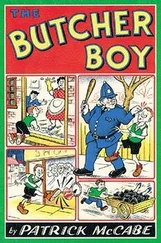“WE’VE FINALLY GOT SOMETHING on Edgar Fieldston,” said Brayer. “The SEC called a few minutes ago, and they think they’ve gotten a glimpse of his coattails.” He was smiling, but it wasn’t his enthusiastic smile. Elizabeth waited for the rest of it.
“Yesterday a loan was approved at the United Free Bank of the Bahamas to an Edgar Fieldston—four million dollars’ worth.”
“What was the collateral?”
“A portfolio of stocks. A lot of blue-chip stuff to sweeten the deal: IBM, Commsat, Xerox, ITT, but the main part was FGE stock. Almost five million dollars’ worth, if you take it on today’s market.”
“How did the SEC get wind of it? The Bahamas aren’t subject to our reporting regulations, are they?”
“No, but the United Free Bank wasn’t up to the transaction. They had to get in touch with First National in Miami. You see, the deal was for cash.”
“Oh, God,” said Elizabeth.
But Brayer continued. “Even that wouldn’t have done it, because bank-to-bank transactions aren’t subject to reporting regulations. But First National couldn’t spare that much cash, so they got in touch with the Federal Reserve Board. Federal Reserve likes to keep an eye on deals involving banks in the Bahamas, because some of them exist mainly for the purpose of moving dirty money. When they learned about the collateral they got in touch with the SEC to see if somebody happened to notice that he’d misplaced some stock certificates. The SEC didn’t pick it up until it was too late. The stock wasn’t stolen, and Fieldston owned it, so—”
“So he’s wandering around in the Caribbean,” said Elizabeth, “with four million dollars in cash. At least he’s alive.”
“Maybe,” said Brayer. “If he is, I’d say he doesn’t intend to come back. If the FGE stock collapses, as I expect it will when we’re through investigating their operations, he’s just picked up four million dollars for about two hundred thousand in legitimate stocks and a whole lot of worthless paper.”
“But there’s another possibility?” asked Elizabeth.
“Yes, I’ll admit he could be on his way to someplace like Paraguay or Costa Rica or Haiti, where he can’t be extradited and can live like a king on his ‘loan.’ But it’s more likely he was getting the Mafia’s investment out of the company.”
“If that’s true, what then?”
“Then it may not even be the real Edgar Fieldston the bank gave the loan to. In any case, he’s not likely to run off until he’s paid whoever’s behind him. They’re not interested in niceties like extradition. All we know for sure is that somebody is liquidating the assets of FGE.”
“So what’s being done?” Elizabeth asked.
“Oh, the obvious things. There’s a list of the serial numbers the Federal Reserve Board turned over to First National. It may turn up in interesting places, but probably it’s already been laundered. The American consulates are alerted for Fieldston’s passport. But I don’t know what we can expect from any of it. With four million dollars he can go pretty deep, if he’s alive and on his own. If he’s not, the possibilities are endless. We’ll never hear of him or the money again.”
“So what you’re saying is that we’re up against another dead end,” said Elizabeth.
Brayer shrugged. “Maybe, but maybe we’ll get lucky. The main thing is to keep on it. I’d say that as of yesterday Fieldston Growth Enterprises ceased to be a functioning entity. But that might be a break for us, if we can figure out who’s carving up the carcass.”
HE LEFT THE OFFICE and Elizabeth tried to return to the reports. The piles of information were getting bigger now. In another week it would be the size of a set of encyclopedias, and there would be nothing to show for it except paper. How many murders so far? A dozen? She began to leaf through the summaries, counting. Thirteen positive, and two more probable if you counted the two blood types found on the pavement in front of the Tropicana. And they still seemed no closer to an indictment than they’d been when Veasy the machinist blew up. And that too, she thought—the union. Veasy was dead, and the union’s pension fund was somewhere in South America by now, maybe working its way northward through a dozen metamorphoses to become a certificate of deposit in some Caporegima’s Swiss bank account. Even if the Justice Department knew about it, the laundering would be so complete they’d never be able to prove it. At least then they’d know whom to watch—but so what? By that time what they were watching for would already have happened. It was worse than hopeless. All they could do was keep score and try to figure out what was next, always hoping an agent might be on the scene when the hit men arrived. Only this time she knew where it would be, and there would be an agent on the scene. Because she had helped put him in front of the guns. If thine eye offend thee pluck it out.
27
Just before the five-o’clock rush reached its peak, a businessman carrying a briefcase walked out of the big Romanesque central post office in Peoria, Illinois. There wasn’t anything about him to distinguish him from the surrounding crowds of people, except that he seemed to walk a bit more slowly than some of them. Only the most perceptive of observers would have said he had a slight limp. But they would not have had the time to feel sorry about the limp, because as he reached the bottom of the broad granite steps, a young woman pulled up at the loading zone in a small blue Datsun and opened the passenger door for him. He got in, set his briefcase on his lap, and smiled at her as they drove away. He didn’t kiss her, but that wouldn’t have seemed unusual, because there wasn’t time. She was already off to make room for others at the loading zone, and a moment later the Datsun had disappeared in the traffic.
“Maureen,” he said, “that was very good.”
“I knew if you wanted to meet me it would have to be at the post office,” said Maureen.
“Is the car safe?” he asked.
“Sure. It’s rented. I wanted to spend my last few hours on this job in relative ease.” She glanced over at him, as though she expected him to say something unpleasant.
He said, “Again, very good. We just aren’t going to make it together.” He took a package out of his coat and placed it in her purse on the seat. “You don’t have to waste time counting it,” he said. “It’s all there—fifty thousand dollars.”
“Fifty?”
“Yes,” he said. “We’ll get you on a plane tonight, but first there are a few things I want you to get me. I’d better make a list.”
HE WATCHED THE LIGHTS of the plane as it lifted into the dark sky and diminished to a pair of tiny blinking spots. The problem with airplanes was that they only looked that way—they were built in the shape of the prototypical image of untrammeled movement and freedom. But an airplane was only part of a complex of tubular corridors that moved you from one broad and brightly lighted lobby to another. There were no cutouts, no places to hide, no ways of modifying the predictability of their movement. A telephone call from one end meant that when you walked down the last tube at the other end there would be something waiting for you: maybe a quiet man who was carrying a box that looked like a present for grandma. But Maureen would be all right. They would have no idea who she was or where she’d come from, and they’d have to spot him again before they knew she was gone. He envied her. She was out of it.
He started the car and drove out of the airport parking lot. It was going to be a long trip, he decided, but the solitude and the darkness would give him time to think about what he was going to do. There was no question about his destination. The one thing he’d been sure of was that he could never go to Las Vegas again, but that had been before he’d realized how things were. They weren’t going to forget about him. They had already devoted too much time and effort to finding him to let him sink out of sight into a comfortable retirement.
Читать дальше












